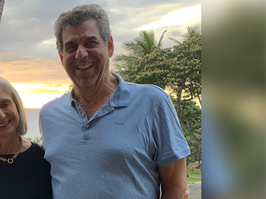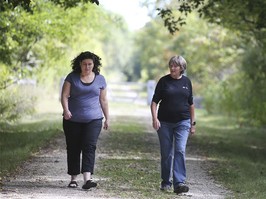blood cancer treatment becomes first to benefit from canada's drug agency fast-track program
canada’s drug agency's time-limited recommendation program is set to deliver its first breakthrough with the blood cancer treatment epkinly.
opinion: car t-cell therapy delays jeopardize lives of canadians with blood cancer
we call for a multi-stakeholder approach that includes government, regulatory and reimbursement bodies, the pharmaceutical industry, clinician and patient leaders to develop solutions that address both healthcare system challenges and the plight of patients who cannot afford to wait.
what it feels like: facing leukemia, recurrence and the ripple effect on the people you love
surviving cancer has been tough for jennifer mitchell, but it wasn’t losing her hair or the debilitating fatigue and nausea of chemo that haunt her. it was telling her husband that her leukemia had come back.
 7 minute read
7 minute read





















